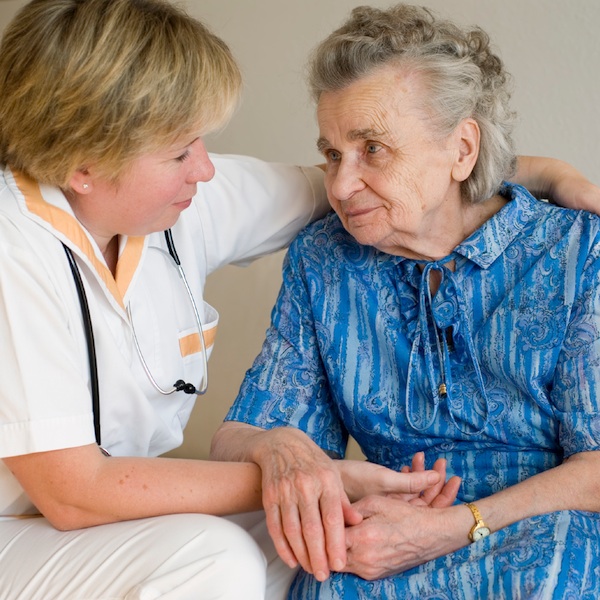
Just last month, we released the results of our latest research with Lancaster University (2015-18) into our innovative model of housing and well-being for older people in the UK.
The study built upon research with Aston University between 2015 and 2018 and involved more than 160 of our residents, across each of our nineteen village and scheme locations..
The results were clear and cemented what we already know: the ‘ExtraCare’ way really delivers measurable positive health outcomes for individuals. It also reiterated to us that our approach results in significant cost savings and efficiencies, not only for our residents but for social and health care systems.
'He receives all the care he needs, which gives me some freedom, and takes away a lot of daily stress from us both.'
Pam Walker, 78, resident at Hughenden Gardens Village, talking of her husband Bryan Walker, 88
Contributing to the results is our award-winning well-being service, providing accessible, informal (drop-in) support, delivered by dedicated well-being advisors.
They offer preventative healthcare and help residents to self-manage their long term health conditions. Having such a service on our residents’ doorsteps has meant they are visiting their GP for routine and planned appointments less, a 46% reduction in fact.
Giving time back to the NHS and to our older people. And for some residents, a monetary saving - as they no longer need to fund public transport or more costly taxis to and from external appointments.
In our first study we also found that 19% of residents moved from pre-frail to resilient. Frailty is a predictor of care needs. By helping residents become more resilient and delaying frailty, we can also delay the cost of care for both residents and social care.
Our model goes beyond this and can help in preventing delayed discharges from hospital too. We have measured a significant reduction in the duration of our residents’ unplanned hospital stays, from an average of between 8-14 days to 1-2 days as they are able to come home sooner to a more suitable environment with care if needed – promoting efficient use of hospital beds.
All of this contributes to significant savings for NHS budgets – over a 12 month period total NHS costs reduce by 38% for ExtraCare residents [according to the Lancaster University research].
'This takes pressure off the health system. This is in contrast to the usual expected increase in NHS costs as people age.'
Paul Jennings, The ExtraCare Charitable Trust’s chair of the board of trustees
The earlier research with Aston University also compared the cost of care provided at ExtraCare to the cost of care provided in people’s homes in the wider community. It showed that our model offers significant potential savings in the cost of social care for local authority commissioners.
The cost of providing lower level social care using our model was £1,222 less per person per year (17.8% less) than providing the same level of care in the wider community (on average, with variation by local authority) and the cost of higher level social care was £4,556 less (26% less) per person, per year.
Having a dedicated care team on site for residents who need support now or later in life means they can retain their independence too and not have to worry about a future move into a care home which could be stressful and costly.
Residents in need of care are offered an appointment with our specialist benefits advisors who can help them to access or update their benefits entitlements – saving our older people thousands of pounds each year.
For us, we truly believe that the results we present in areas of physical and mental well-being are made possible by our charitable status and the fact we are not driven by profit targets and this, as demonstrated above, has a knock on positive impact on the NHS.





















